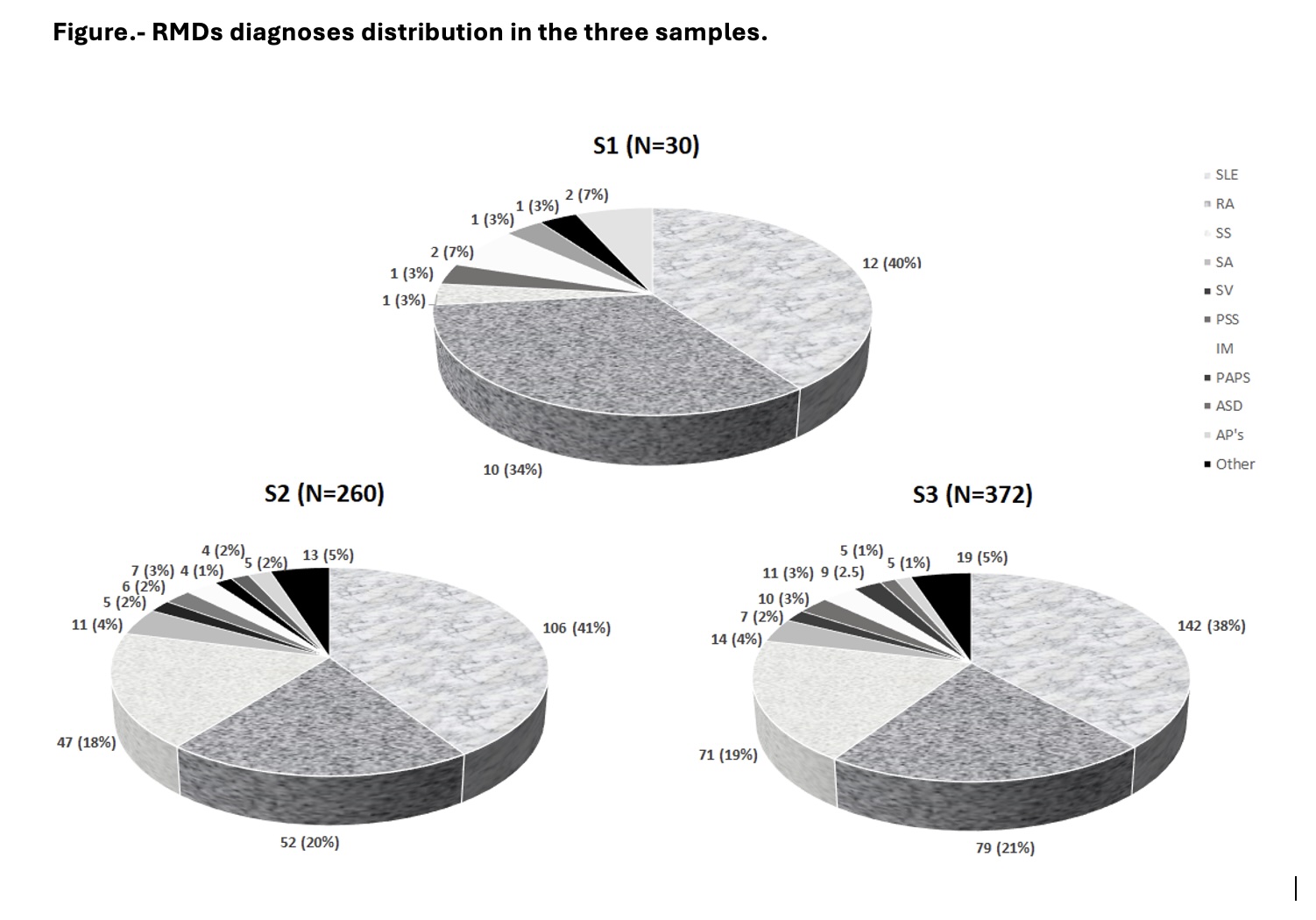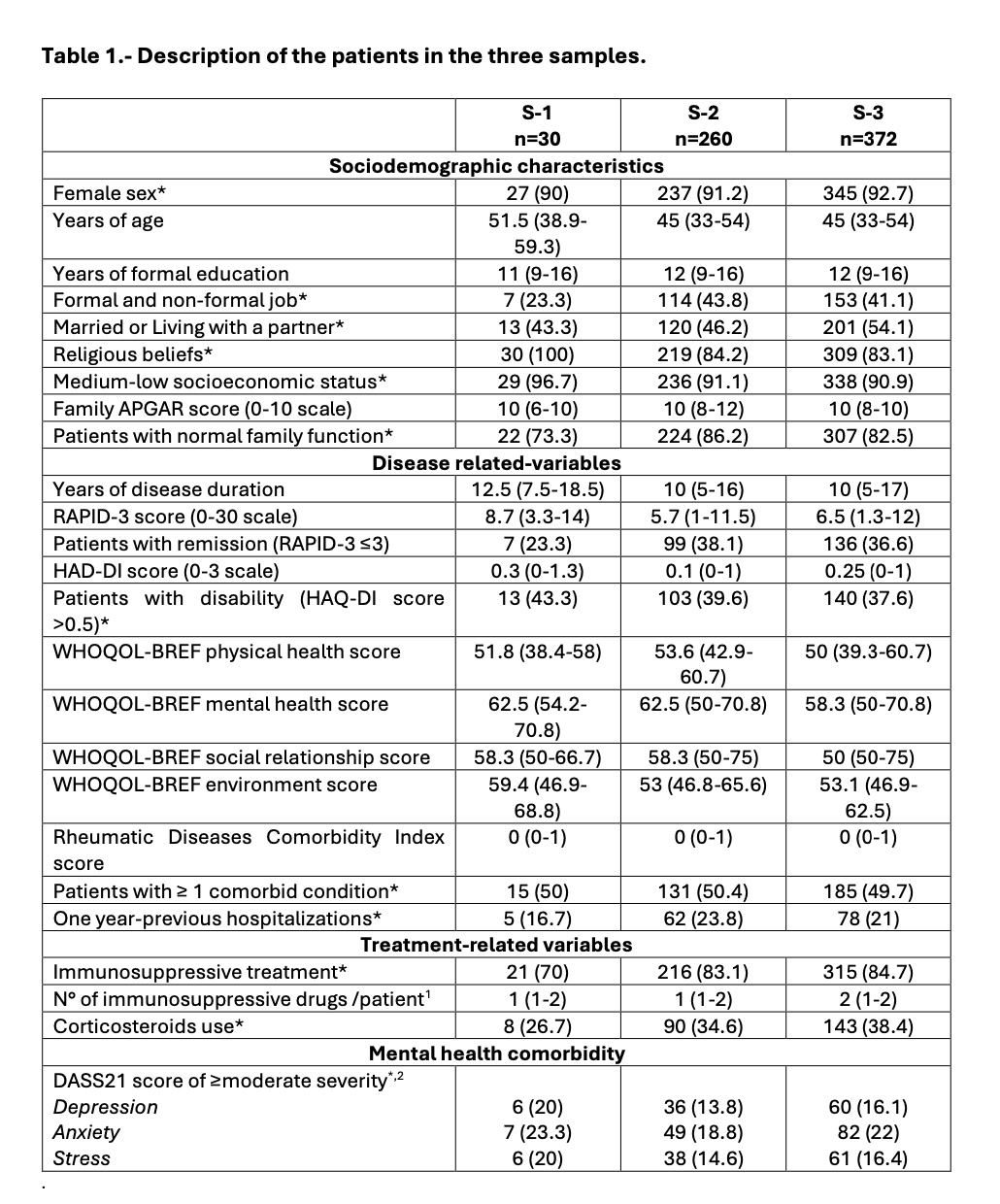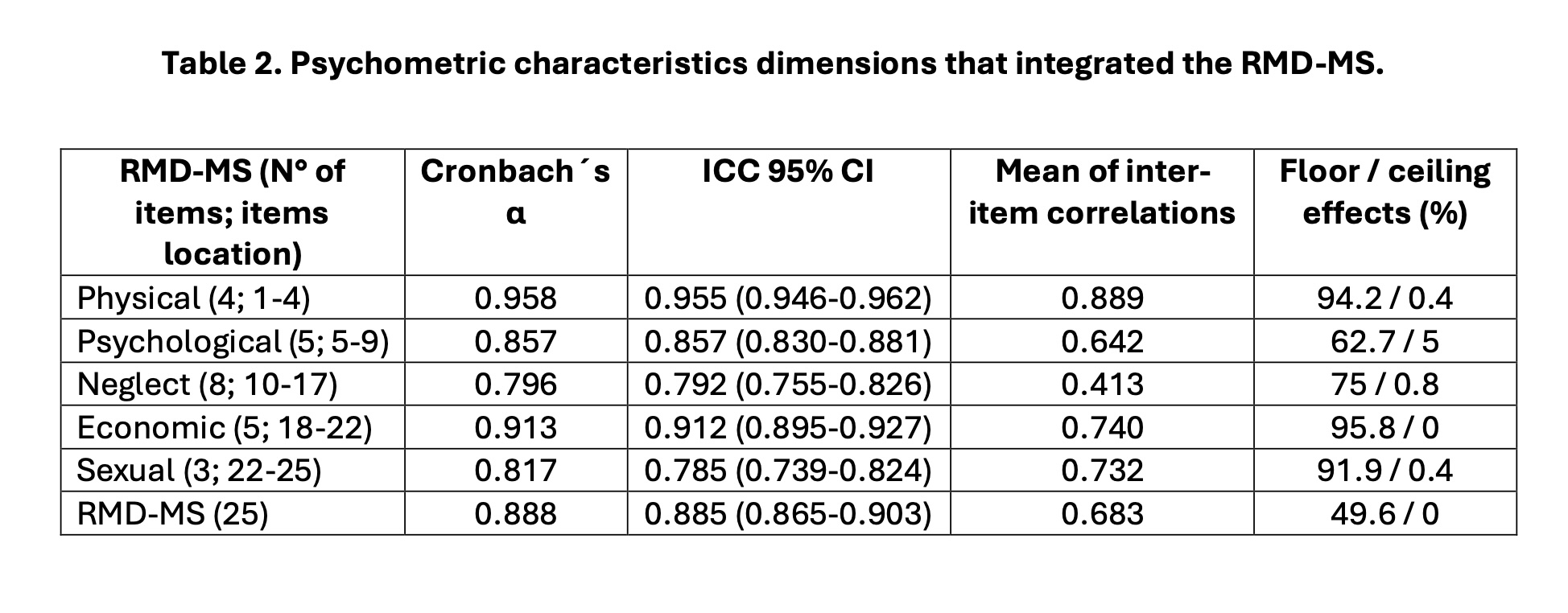Session Information
Session Type: Poster Session B
Session Time: 10:30AM-12:30PM
Background/Purpose: Mistreatment is a complex problem that impacts people’s quality of life, morbidity, and mortality. In aged people, it has been associated with female sex, poor general health, depression, functional decline, and increased dependence levels, all of which are well-recognized characteristics of patients with rheumatic diseases (RMDs).
The objective was to describe the mistreatment phenomenon in Mexican patients with RMDs. We additionally report the adaptation and validation of the Geriatric Mistreatment Scale (GMS) in the target population.
Methods: This cross-sectional study was developed in two phases (June 2023- February 2024), and three convenience samples were used: S-1 (n=30), S-2 (n=260), and S-3 (n=372).
Phase 1 consisted of first adapting the GMS (22 items distributed across five dimensions: physical, psychological, neglect, economic, and sexual, and each item allowed a dichotomous-type response [no occurrence/occurrence]) to RMDs (RMD-MS), using experts’ judgment. After that, we performed RMD-MS face validity (pilot testing, S-1), content validity (experts’ agreement), concurrent criterion validity (with family APGAR score ≤3, S-2), construct validity (exploratory factor analysis and convergent validity, S-2), reliability (internal consistency and temporal stability, S-2) and feasibility (in S-1).
Phase 2 consisted of the mistreatment description in S-3.
The RMD-MS score was calculated as the sum of the individual item’s score (min 0-Max 25), and the final score is presented on a scale of 0 to 10. Mistreatment was defined when RMD-MS score ≥1.
The sample size required to estimate overall mistreatment was (at least) 365 patients, with a 95% confidence level and 5% precision.
Results: Overall, patients represented typical outpatients with RMDs and substantial disease duration (Table 1). The Figure summarizes the most frequent diagnoses in the three samples used.
There were 187 (50.3%) patients with overall mistreatment, and psychological mistreatment was the most frequent in 142 (75.9%) patients, followed by neglect in 96 (51.3%), sexual in 30 (16%), physical in 23 (12.3%), and economic mistreatment in 20 (10.7%). Among patients who rated mistreatment, they perceived it was related to the underlying RMD or RMD impact on their lives and families in a variable percentage, from 13.3% for sexual mistreatment to 53.3% for psychological mistreatment.
Patients with a positive answer to at least one mistreatment pattern were selected to identify the sex and the relationship with the abuser. The number of “I do not want to answer” responses raised to 21.7%-67.7% for sex identification and 40% to 72.9% for the relationship with the patient. Overall, men (for neglect, economic, and sexual mistreatment patterns) and family members (all mistreatment patterns but for psychological mistreatment) were frequently identified as abusers.
The RMD-MS scale was valid, reliable, and feasible (Table 2).
Conclusion: Half of the Mexican patients with RMDs perceived some mistreatment, most frequently psychological mistreatment, which is also often perceived as related to the underlying RMD.
To cite this abstract in AMA style:
Pascual Ramos V, Guaracha Basañez G, Contreras-Yáñez I, Ledón-LLanes L, Ortiz-Haro A, Guaracha-Basañez G. Perceived Mistreatment in Patients with Rheumatic Diseases: The Impact of the Underlying Diagnosis [abstract]. Arthritis Rheumatol. 2024; 76 (suppl 9). https://acrabstracts.org/abstract/perceived-mistreatment-in-patients-with-rheumatic-diseases-the-impact-of-the-underlying-diagnosis/. Accessed .« Back to ACR Convergence 2024
ACR Meeting Abstracts - https://acrabstracts.org/abstract/perceived-mistreatment-in-patients-with-rheumatic-diseases-the-impact-of-the-underlying-diagnosis/



